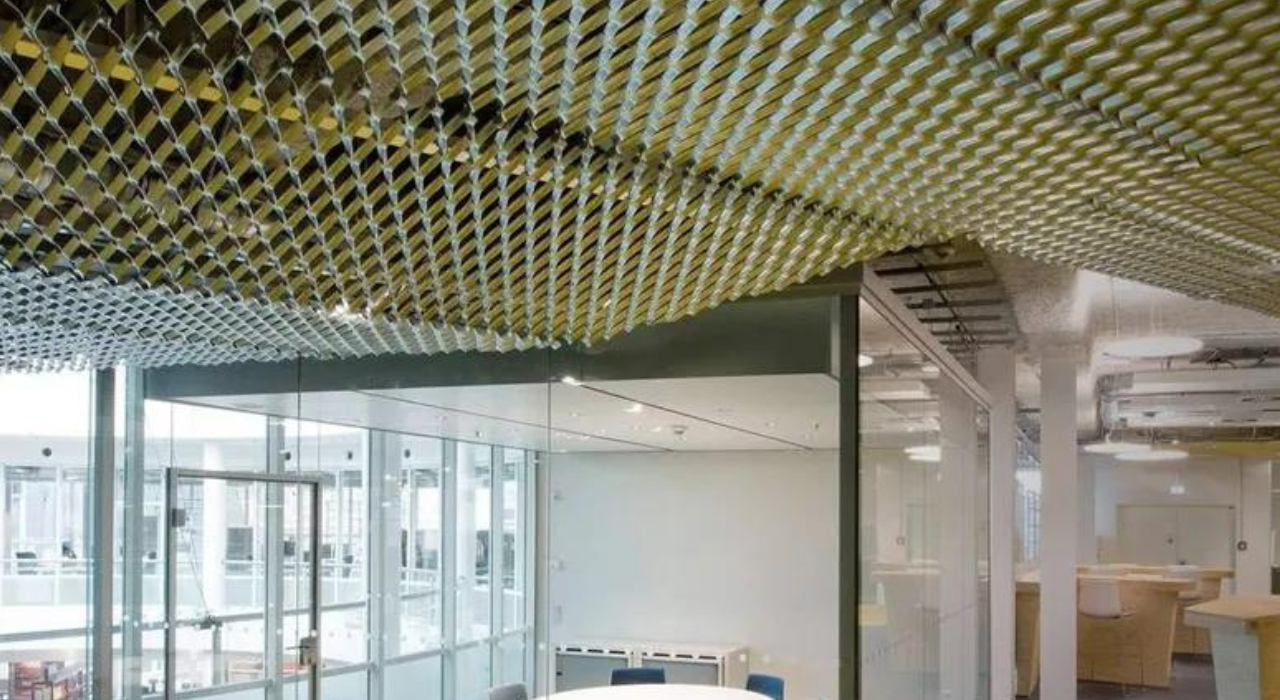Perforated metal ceilings have changed commercial kitchens by optimizing functionality, security, and proficiency in these essential spaces. They play a vital part in improving ventilation, essential for managing warm, steam, and airborne particles generated during cooking. Safety is improved as perforated metal ceiling panels contribute to controlling oil and smoke, crucial in minimizing fire dangers.
Their durable construction from materials like stainless steel ensures longevity and simple maintenance, assembly exacting cleanliness standards. Additionally, these ceilings give acoustic consolation by hosting noise levels, cultivating a more conducive working environment for kitchen staff.
Enhancing Commercial Kitchens with Perforated Metal Ceilings
Perforated metal ceilings have become indispensable in commercial kitchens, revolutionizing the way these pivotal spaces operate. Designed to improve usefulness, security, and proficiency, punctured metal ceilings offer a wave of benefits that address the interesting challenges posed by the requesting environment of commercial kitchens.
Enhanced Ventilation and Discuss Quality
One of the essential reasons perforated metal ceilings are basic in commercial kitchens is their capacity to improve ventilation and discuss quality. Kitchens create noteworthy amounts of warm, steam, and airborne particles amid cooking forms. Perforated metal panels, with their design of precision-punched holes or openings, encourage the section of discussion. This airflow makes a difference in scattering warm and steam, diminishing mugginess levels, and minimizing the accumulation of cooking odors and airborne oil particles.
Effective Warm Management
Commercial kitchens work under steady warm push from cooking equipment, ovens, and stoves. Perforated metal ceilings help in successful warm management by permitting hot discuss to rise and elude through the apertures. This preparation makes a difference in controlling temperatures inside the kitchen, anticipating overheating, and maintaining a more steady and comfortable environment for chefs and kitchen staff.
Grease and Smoke Control
Oil and smoke are common byproducts of cooking forms in commercial kitchens. Punctured metal ceilings play a significant part in overseeing these contaminants by giving a surface that can be effectively cleaned and kept up. The punctured plan permits the establishment of coordinated ventilation systems that capture and extricate grease-laden vapors and smoke straightforwardly from cooking ranges.
Durability and Hygiene
Perforated metal ceilings are eminent for their strength and sterile properties, making them perfect for commercial kitchen situations. Built from robust materials such as stainless steel or aluminum, punctured boards are safe from erosion, dampness, and damage. Their smooth surfaces are simple to clean and purify, pivotal for keeping up exacting cleanliness measures required in nourishment arrangement zones. Unlike conventional ceiling materials, punctured metal boards don't assimilate dampness or harbor microscopic organisms, shape, or buildup, in this manner advancing a cleaner and more secure kitchen environment.
Acoustic Comfort
In bustling commercial kitchens where noise levels can heighten due to hardware operation and staff exercises, acoustic consolation is regularly neglected but basic. Punctured metal ceilings contribute to lessening clamor levels by retaining and hosing sound waves. The perforated surface acts as a sound safeguard, minimizing resonation and echo inside the kitchen space.
Aesthetic Request and Customization
Accessible in a variety of designs, finishes, and colors, these ceilings can be customized to complement diverse kitchen plans and structural styles. Whether pointing for an advanced, mechanical see or a consistent integration with existing stylistic layout, perforated metal panels give architects versatile choices to form outwardly engaging and cohesive kitchen situations.
Conclusion
In conclusion, perforated metal ceilings are basic in commercial kitchens due to their capacity to improve ventilation, oversee warmth successfully, control oil and smoke, guarantee toughness and cleanliness, make strides in acoustic consolation, and offer stylish customization. These ceilings not only contribute to the operational effectiveness and security of kitchens but also make a more charming and profitable working environment for kitchen staff. As the requests for commercial kitchens continue to advance, perforated metal ceilings remain an imperative component in the assembly of these challenges while maintaining high measures of usefulness, cleanliness, and plan aesthetics.


